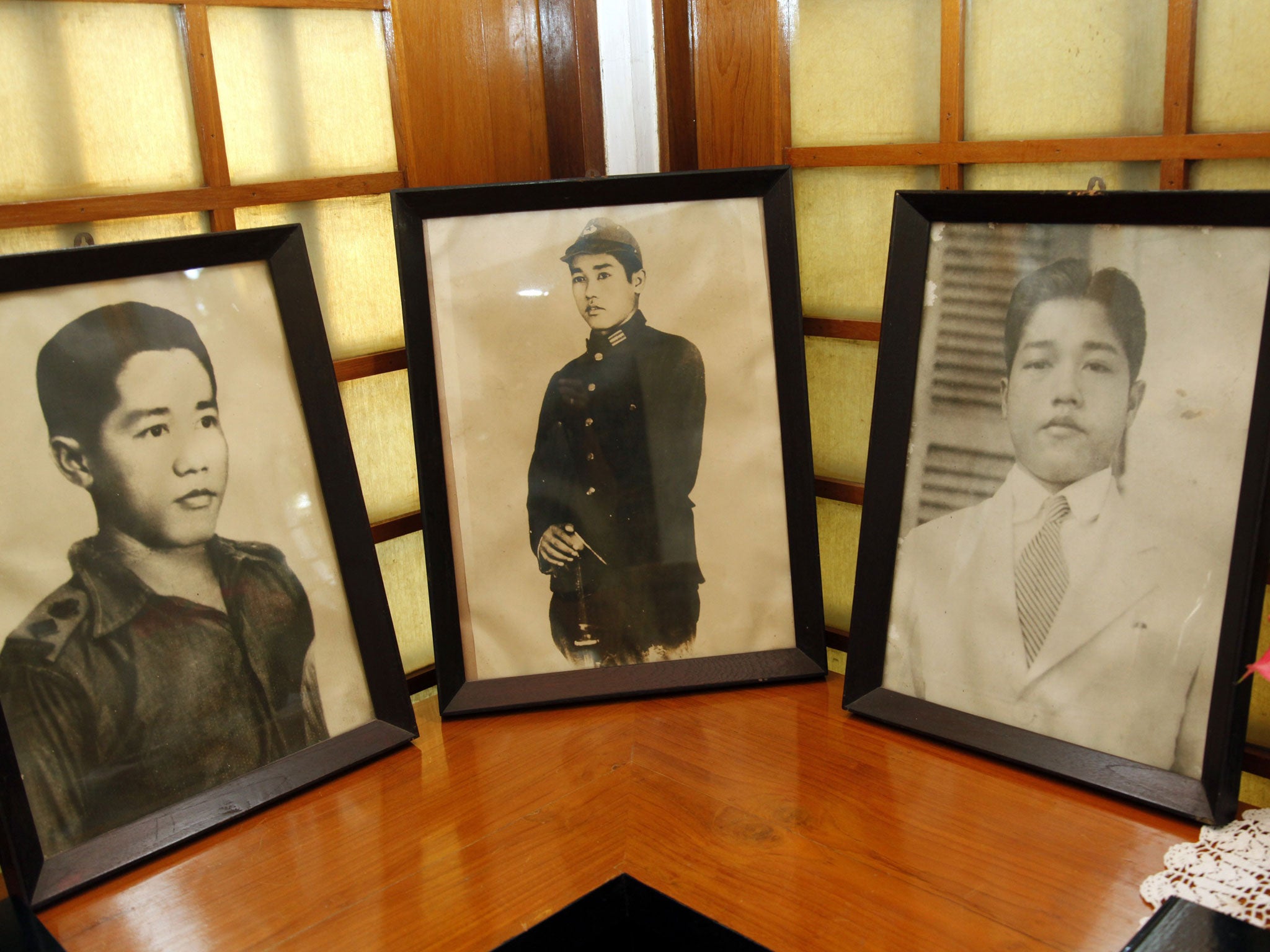Ye Htut, last of Burma’s ‘30 Comrades’ freedom fighters, dies aged 92

Independent Burma’s last human link with its founding fathers was severed this week with the death in Rangoon of Ye Htut, one of the so-called “30 Comrades”, at the age of 92. He was the last surviving member of a band of students who invaded Burma alongside the Japanese with the aim of overthrowing British colonial rule, in which they succeeded with remarkable ease.
Tin Oo, the deputy leader of Aung San Suu Kyi’s National League for Democracy, led tributes to the old soldier, who died on Wednesday.
“He served as a patron of the Patriotic Old Comrades’ League – a group formed by retired army leaders during the peak of the 1988 uprising,” Tin Oo said, remembering Ye Htut’s guidance for the democratic activists during the uprising against dictatorship in 1988. “He shared his experience and gave us advice during the early days.”
Ye Htut was one of a group of radical Rangoon university students, led and inspired by General Aung San, the father of Aung San Suu Kyi, who travelled to China in 1941 to obtain help from Chinese communist insurgents in forcing the British out of Burma. Instead, they were identified and adopted by Japanese army officers and taken to Tokyo to be indoctrinated with the ideology of Japanese imperialism and moulded into a force that would aid Japan in the projected invasion of South-East Asia. They trained secretly in a camp on the Chinese coast, then in a house in Bangkok.
A couple of weeks after the Japanese attack on Pearl Harbour, 25 of them had blood extracted from their arms by syringe and mixed in a bowl from which they all drank, swearing loyalty to each other and to the cause of free Burma, in an ancient Burmese ritual.
The 30 young freedom fighters formed the nucleus of the Burmese Independent Army and invaded Burma alongside their Japanese patrons in the spring of 1942, their numbers swelling with Burmese volunteers as they went along. Under the leadership of the maverick Gen Aung San, the nascent army outgrew the Japanese military’s plans and, as the Allies fought their way back into Burma they smartly switched sides, helping British forces to finish the job of destroying the Japanese remnants.
Ye Htut rose to the rank of brigade commander in the new army but the solidarity of the 30 Comrades did not survive Aung San’s assassination in July 1947. Independence from Britain the following year saw a rapid and total breakdown of public order, and Ye Htut joined a communist insurgency against Prime Minister U Nu’s fragile elected government, which at one point controlled little territory beyond the Rangoon city limits. With his army, paid and remotely controlled from across the border in Mao’s China, Ye Htut and his communist guerrilla force dug in for nearly two decades in the rugged country around the town of Pegu, north of Rangoon.
After the democratic government was toppled in a coup d’état by another of the Comrades, General Ne Win, in 1962, Ye Htut laid down his arms and returned to the capital to serve in Ne Win’s newly established Burma Socialist Programme Party, where he became instructor in the military training school. But he eventually fell foul of the notoriously temperamental Ne Win and was purged in 1974.
His last reprise came during the uprising against Ne Win’s tyranny in 1988, when he and other veterans banded together to fight their old comrade. Tin Oo was elected their leader but later confessed: “I knew that I could not lead the entire country … We needed a strong leader who could lead the whole show … somebody who understood democracy, who had really lived it.” That person turned out to be the daughter of their first leader, Aung San.
Ye Htut’s decision to join forces with the opponents of the military dictatorship had repercussions. His son, Kyaw Kyaw, told The Independent that both Ne Win’s Socialist regime and the military clique that replaced it “refused to recognise Ye Htut as a legendary member of the 30 Comrades”.
Subscribe to Independent Premium to bookmark this article
Want to bookmark your favourite articles and stories to read or reference later? Start your Independent Premium subscription today.

Join our commenting forum
Join thought-provoking conversations, follow other Independent readers and see their replies